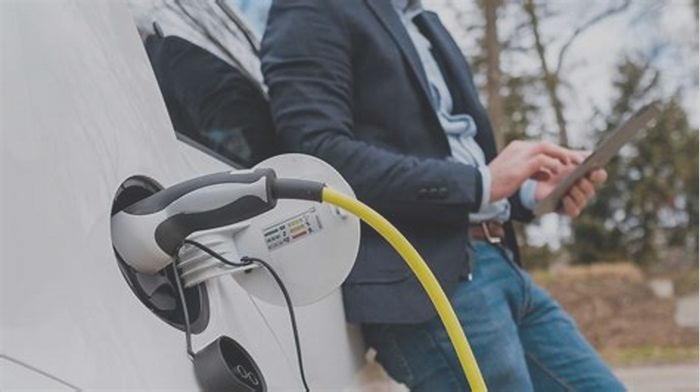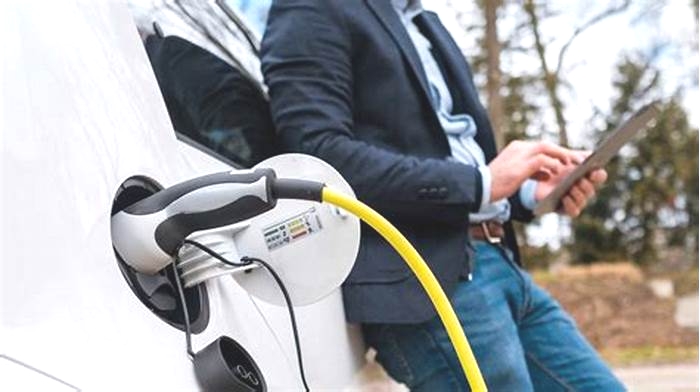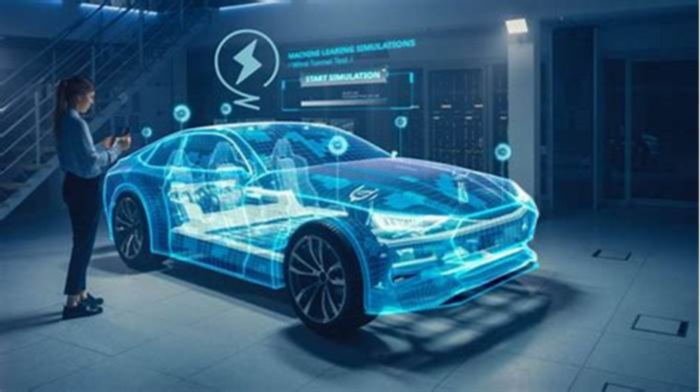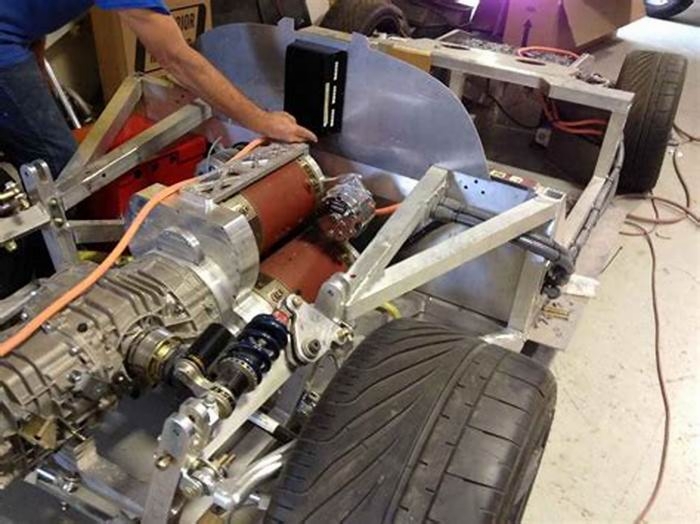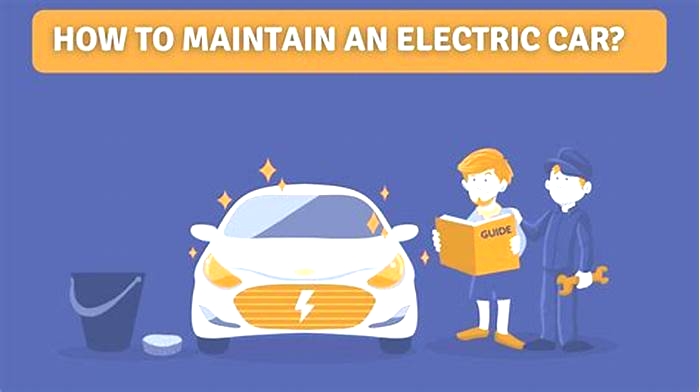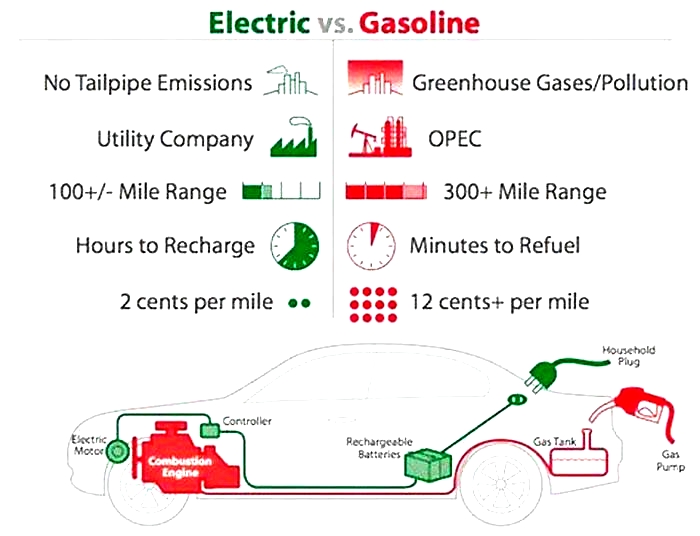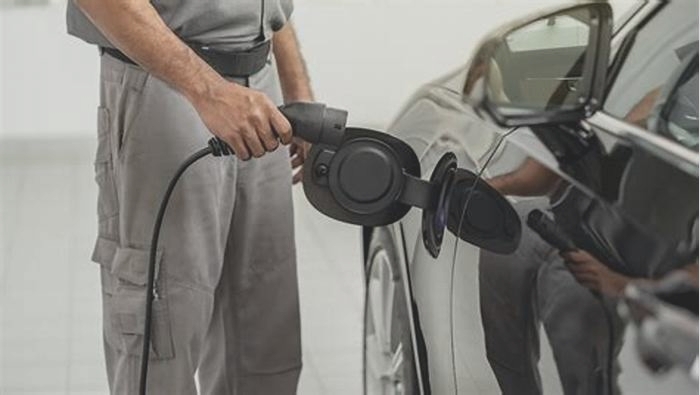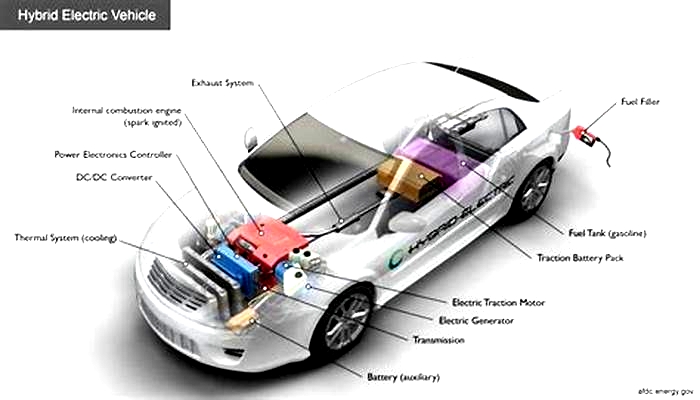Electric Vehicle Maintenance Schedules Keeping Your EV Running Smoothly
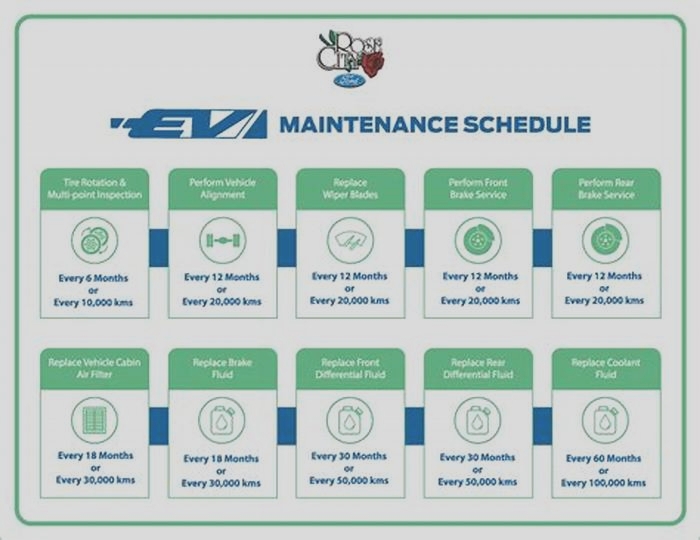
Comprehensive Guide to Electric Vehicle Maintenance (Infographic)
Welcome to our comprehensive guide to keeping your electric vehicle (EV) running smoothly your ultimate resource for maintaining your EVs performance. In this guide, well dive deep into the world of EV maintenance, focusing on crucial areas that will ensure your electric vehicle remains a reliable and efficient mode of transportation for years to come.
Before we dive into the specifics, lets address why regular maintenance should be at the forefront of your EV ownership journey.
For insights into the advantages of electric cars, check out our article on The Benefits of Electric Cars. Understanding these benefits will not only reinforce your decision to drive an EV but also highlight why staying on top of maintenance is key to maximizing those advantages. After all, a well-maintained EV isnt just about performance its about embracing a smarter and greener way to drive.
Electric Vehicle Maintenance Guide: Key Tips for Longevity & Performance
- Prioritize Regular Maintenance
- Focus on Core Components
- Battery Care for Longevity
- Benefit from Maintenance Inclusion
- Compare Subscription and Leasing
- Embrace a Greener Future
Infographic

Why Regular Maintenance Matters
While EVs are often associated with lower maintenance requirements due to their simplified mechanical structure, regular maintenance remains a cornerstone of preserving their performance and longevity. Contrary to popular belief, EVs are not maintenance-free. Rather, they require specialized care to maintain their efficiency and optimal functionality.
Consider the battery the lifeblood of your EV. Just like any rechargeable device, your EVs battery degrades over time. However, regular maintenance practices can mitigate this degradation and extend the batterys lifespan. From proper charging habits to managing temperature fluctuations, adhering to a maintenance routine can significantly impact your EVs overall performance.
Moreover, staying on top of maintenance allows you to catch potential issues before they escalate into major problems. This proactive approach not only saves you time and money but also ensures a smoother driving experience.
Key Areas to Focus On
Maintaining an electric vehicle involves paying attention to specific areas that distinguish EVs from traditional vehicles. Lets explore the key components you should focus on to keep your EV in prime condition:
- Battery Care: The heart of your EV, the battery, deserves special attention. Our guide on battery care will equip you with insights into charging best practices, battery health management, and more. By understanding how to care for your battery, youll optimize its lifespan and ensure consistent performance.
- Brake System: Unlike conventional vehicles, EVs often feature regenerative braking systems. These systems require a different approach to maintenance. Well delve into the specifics of maintaining regenerative brakes and how they contribute to the overall efficiency of your EV.
- Tire Maintenance: Proper tire care is essential for any vehicle, and EVs are no exception. Well-maintained tires ensure optimal handling, efficiency, and safety. Learn how to check tire pressure, rotate tires, and recognize signs of wear.
For a deep dive into understanding the world of EV charging, check out our comprehensive guide on How Do You Charge Electric Cars? Everything You Need To Know About EV Charging. Just like decoding intricate lines of code, mastering EV charging methods will empower you to keep your vehicle juiced up efficiently.
By focusing on these key areas, youll not only enhance your EVs performance but also contribute to its overall longevity. Stay tuned as we guide you through practical tips and techniques to maintain your EVs smooth operation.
Stay tuned for the next sections of this comprehensive guide, where well delve deeper into battery care, brake systems, and tire maintenance.

Tips for Battery Longevity
Your EVs battery is the cornerstone of its performance, and proper care is crucial for maximizing its longevity. Here are some practical tips to ensure your battery remains in top-notch condition:
- Optimal Charging Practices: Charging your EV correctly plays a pivotal role in battery health. Avoid frequent deep discharges and opt for shorter, more frequent charging sessions. Utilize a Level 1 charger for slower, gentler charging when possible, as it reduces stress on the battery.
- Temperature Considerations: Extreme temperatures can impact your batterys efficiency and lifespan. Avoid exposing your EV to prolonged periods of high heat or extreme cold. When parking, choose shaded areas during hot weather and use battery preconditioning in colder temperatures.
- Regular Software Updates: Manufacturers often release software updates that optimize battery performance. Stay connected to these updates and keep your EVs software current. This proactive approach can enhance battery efficiency over time.
By following these tips, youll be well-equipped to extend your batterys lifespan and maintain its performance, ensuring that your EV serves you reliably for years to come.
Steer EVs Comprehensive Maintenance Inclusion
At Steer EV, we recognize the significance of a hassle-free EV ownership experience. Our commitment to your satisfaction extends beyond providing exceptional electric vehicles. With our subscription plans, you gain access to comprehensive maintenance packages, ensuring that your EV receives expert care throughout its lifespan.
Our maintenance inclusion covers a range of services, from routine check-ups to specialized repairs. Whether its battery diagnostics, brake system maintenance, or tire rotations, our team of skilled technicians is dedicated to keeping your EV operating at its best.
For a detailed comparison between car subscription and car leasing, check out our article on Car Subscription Vs. Car Leasing: See How They Compare. Just like weighing different marketing strategies, understanding the nuances of these options empowers you to make an informed decision that aligns with your goals.
By choosing Steer EV, youre not only selecting a premium electric vehicle but also a partner in your EV journey. We take care of the maintenance details, allowing you to focus on enjoying the seamless and sustainable driving experience that EVs offer.
Conclusion
Maintaining your electric vehicle is a proactive investment in its long-term performance and your driving satisfaction. By adhering to best practices for battery care, focusing on key maintenance areas, and considering Steer EVs comprehensive maintenance inclusion, youre setting the stage for a rewarding EV ownership experience.
Remember, a well-maintained EV isnt just a means of transportation its a step towards a greener future, reduced emissions, and enhanced driving enjoyment. At Steer EV, were here to support your journey every step of the way, from selecting the right electric vehicle to providing expert maintenance solutions.
Thank you for joining us in this comprehensive guide to maintaining your EV. Were excited to be part of your electric journey and look forward to serving your EV needs with excellence.
Tags:What Maintenance Does an Electric Car Need?
Your electric car does require routine upkeep, but the nature of its maintenance tasks differs due to the absence of an engine, exhaust system, and other components commonly found in gasoline-powered cars.
EV maintenance primarily focuses on the battery, electric motor, and electronics. Since the battery is the heart of your electric vehicle, keeping it in optimal condition is essential for maintaining your cars range and performance.
Regular inspections of the battery pack, as well as proper management of charging habits and thermal conditions, play a crucial role in extending its lifespan. The electric motor and associated electronics also require periodic checks to ensure everything is running smoothly.
Youll still need to pay attention to tire rotations, brake system inspections, and fluid replacements for brake and cooling systems.
Regular software updates are vital for maintaining your electric vehicles efficiency and functionality, helping to maximize its performance and reliability.
Regular Maintenance Procedures
Battery Care
Your EVs battery pack is the heart of the vehicleensure that it receives regular service. Check the battery coolant levels as part of your maintenance schedule to prevent overheating.
While battery replacements can be costly, proper care can extend your batterys lifespan. Always follow the manufacturers instructions for charging and caring for the battery to avoid voiding the warranty.
Tire Maintenance
Regular tire service is vital for safety and vehicle efficiency. Tire pressure should be checked monthly, as incorrect pressure can lead to increased wear and reduced range.
Regular tire rotations help even out tire wear and maintain optimum tread depth, which is crucial for traction. Inspect tires for wear and replace them if the tread depth is below the recommended level.
Braking Systems
EVs feature regenerative braking systems which reduce wear on brake pads and rotors. Despite this, brake parts are not exempt from wear and will need replacement over time.
Ensure brake fluid levels are checked during service intervals, and have brake parts inspected regularly to safeguard against failure.
Cooling Systems
Unlike traditional combustion engines, EVs may have different cooling system requirements to manage battery temperature.
Regularly service the coolant system and top up or replace coolant fluids in accordance with your vehicles specific guidelines to ensure optimal battery operation and prevent damage.
Cabin Air Quality
Replacing cabin air filters is a simple but important aspect of electric car maintenance. This process ensures the air inside your vehicle remains clean by filtering out pollen, dust, and other particulates.
Important: Follow your EVs maintenance guide for when to replace filters to maintain air quality and cabin comfort.
Recommended Service Intervals
Following the advised service schedule guarantees that essential components are checked and maintained timely, averting unforeseen problems.
Manufacturers Service Recommendations
Each electric vehicle manufacturer provides a maintenance schedule specific to their models based on extensive testing and engineering.
For instance, Tesla prescribes different service intervals for their various models, and these are articulated in the owners manuals. Follow these guidelines as they are designed to ensure your vehicle operates efficiently and may also be necessary to maintain the warranty.
- Tesla Model 3: 10,000 miles Tire rotation, balance, and alignment check
- Tesla Model S: 12,500 miles Replace cabin air filter
- Other Electric Vehicles: Approx. every 7,500 miles Check brake fluid and replace if necessary
Understanding Wear and Tear
While electric cars have fewer moving parts compared to conventional vehicles, they arent free from wear and tear.
Items such as brakes, suspension, and tires will degrade over time. You should inspect these parts regularly to determine when repairs or replacement is necessary. Regular service checks help detect early signs of wear, which reduces the risk of larger, more costly issues down the line.
- Brakes: Check every 5,000 miles
- Suspension components: Inspect every 10,000 miles
- Tires: Examine for tread wear and pressure monthly
Determining Battery Health
EV batteries, particularly lithium-ion batteries, have a lifespan that can be influenced by various factors such as driving habits and climate.
Check your vehicles battery health at prescribed intervals to assess capacity and overall performance.
- Battery Check: At least once a year
- Lithium-ion Battery: Expect a service life between 12 and 15 years in moderate climates
Troubleshooting and Repairs
Following the recommended service schedule helps in properly checking and maintaining key parts. This allows you to understand whether you need professional help for certain issues or can handle them yourself. Knowing common problems and what your warranty covers can save you time and money.
DIY vs. Professional Service
Your owners manual is your go-to guide for maintenance and troubleshooting. For basic upkeep such as tire rotation or cabin air filter replacement, DIY can be cost-effective and straightforward.
However, repairs related to the battery pack or electric motors often require specialized knowledge and equipment, making a certified dealership or garage the safer choice.
Common Issues Faced by EV Owners
- Battery degradation: Over time, your electric cars battery may hold less charge. If performance noticeably diminishes, a professional evaluation is recommended.
- Electrical glitches: For software issues or recurring warning messages, a repair at a service center that can perform software upgrades may be necessary.
Warranty Coverage and Limitations
Most automakers provide a warranty that covers major components. Tesla, for example, offers substantial battery and drive unit warranties.
However, limitations exist; normal wear-and-tear items and damage from accidents typically fall outside of warranty parameters. Always check your specific warranty for details to avoid unexpected repair costs.
Enhancing Electric Car Lifespan
Preventive Maintenance Tips
Routine checks are essential for prolonging your cars lifespan. Replace parts such as windshield wipers and cabin air filters regularly to maintain visibility and air quality.
- Battery care: Avoid full discharge; partial cycles are recommended.
- Tire care: Regular rotation for even wear and longer tire life.
- Brake system: Check brake pads and discs, as regenerative braking reduces wear but doesnt eliminate it.
Storage and Charging Best Practices
Storing and charging your EV correctly is vital for battery longevity. Extreme temperatures can impact battery performance and lifespan, so park in a temperature-controlled space when possible.
For charging, using regular home chargers is typically better for your battery than frequent use of fast chargers, as rapid charging can lead to quicker degradation.
- Optimal Charging Range: Keep battery charge between 20%-80%.
- Temperature Control: Store your EV in a garage or shaded area.
Upkeep of Electrical Components
Keep your cars electrical system in top condition through regular service. This encompasses not just the battery but also other electronics, such as onboard computers and sensors.
Periodically inspect and replace any lights or filters to ensure they are functioning correctly. High-quality sealants can also prevent moisture from affecting electrical integrity.
- Electronics inspection: Schedule annual check-ups.
- Component care: Clean and replace filters to maintain airflow and system efficiency.
Understanding Electric Vehicle Safety
Pay attention to your cars servicing needs because good vehicle safety can markedly diminish the likelihood of encountering breakdowns or operational failures.
Impact of Maintenance on Vehicle Safety
Neglecting maintenance can directly compromise the safety of your electric vehicle:
- Brake Fluid and Other Fluids: Although EVs typically have fewer fluids, you should still check levels, such as the brake fluid, to ensure effectiveness and prevent corrosion.
- Service Intervals: Adhering to recommended service intervals allows for a comprehensive multi-point inspection by professionals who can spot potential safety issues.
- Parts Wear: Even though electric cars possess fewer moving parts, components like suspension parts, steering mechanisms, and tires can wear out and pose safety risks if not serviced properly.
Remember, maintaining your EV is not just about extending its lifespanits about ensuring your safety and the safety of others on the road. Regular checks on these key components and adherence to maintenance schedules play an integral role in your electric cars safe operation.

